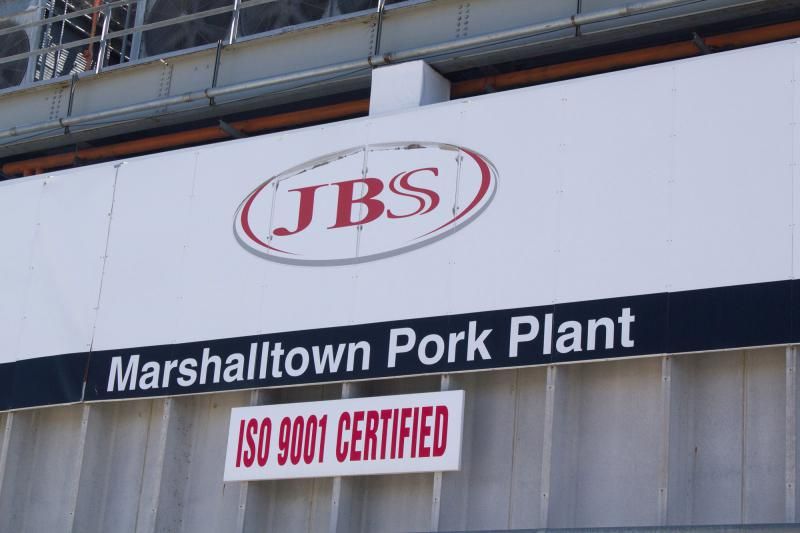
(AMY MAYER / FILE/HARVEST PUBLIC MEDIA)
The largest meat processor in the world stands on the verge of starting up its plants after getting shut down over the Memorial Day weekend by hackers chasing ransom.
JBS, a Brazilian-based conglomerate with a subsidiary headquartered in Colorado and factory-scale slaughterhouses across the U.S., says it’s made “significant progress” in overcoming the cyberattack and cranking up the plants that carve up 20% of the U.S. meat supply.
“Our systems are coming back online and we are not sparing any resources to fight this threat,” Andre Nogueira, JBS USA CEO said in a statement. “We have cybersecurity plans in place to address these types of issues and we are successfully executing those plans.”
Officials at the United Food and Commercial Workers, the union that represents more than 25,000 JBS workers across the country, said the cyberattack was felt at all of the company’s U.S. meatpacking facilities. JBS facilities had shutdowns in Grand Island and Omaha, Nebraska. JBS pork plants in Oklahoma, Illinois and Iowa were still operational, according to union officials.
JBS told the White House that the attack likely came from a Russian-based criminal organization. In a press briefing Tuesday, White House press secretary Karine Jean-Pierre called out Moscow for not cracking down on cybercriminals.
“The White House is engaging directly with the Russian government on this matter and delivering the message that responsible states do not harbor ransomware criminals,” the spokesperson said.
She said that the FBI has opened an investigation, and that the Cybersecurity and Infrastructure Security Agency is giving JBS technical help.
The U.S. Department of Agriculture has contacted other meat processors to encourage adding capacity “and to stress the importance of keeping supply moving.”
JBS relies heavily on computer systems, said Derrell Peel, a livestock marketing specialist at Oklahoma State University.
“Meatpacking plants rely on immense amounts of data, and information, all computer-driven,” Peel said. “It’s not at all surprising that they would have to shut down in the face of an outage in their IT (information technology) systems.”
Peel said JBS processes around 22,000 head of cattle a day. The shutdown delays business for JBS, but grocery stores won’t see empty shelves.
“It’s a significant impact in terms of operations,” Peel said, “It’s probably not a major impact in terms of actually creating significant product delays for most of their customers.”













